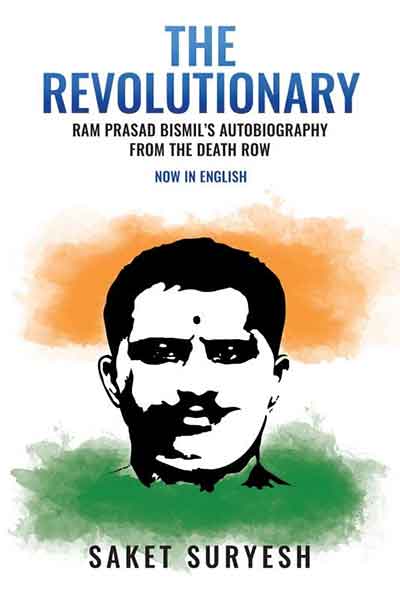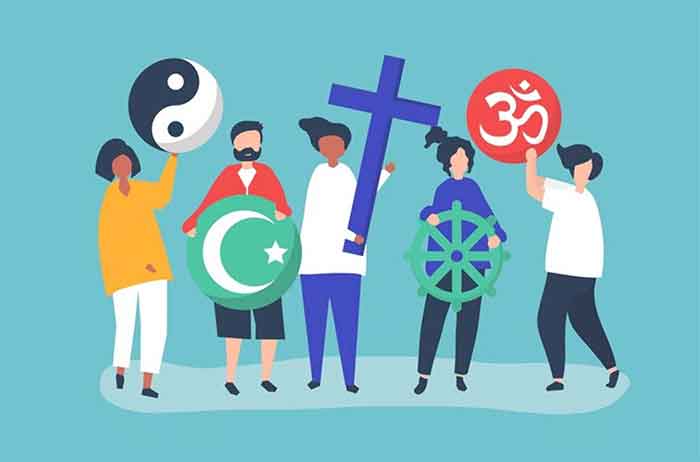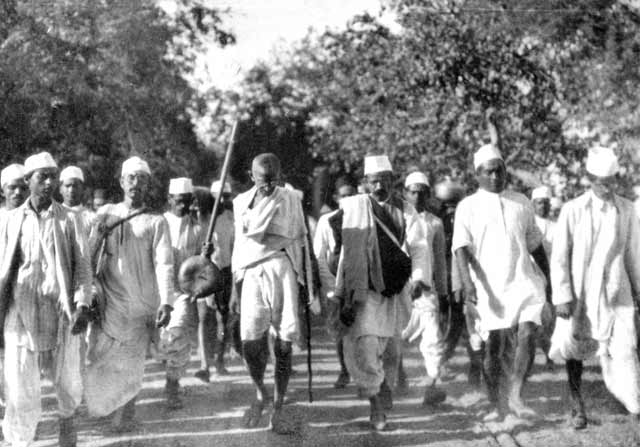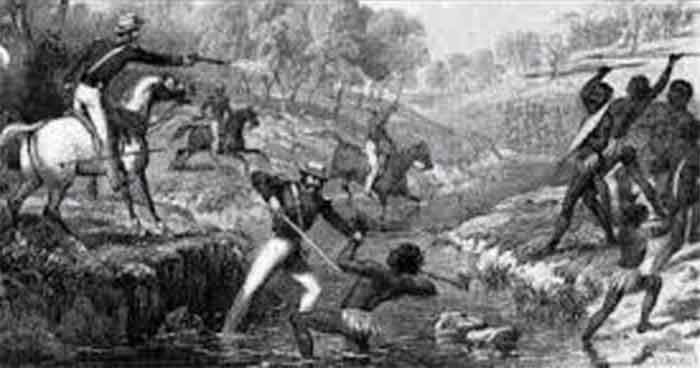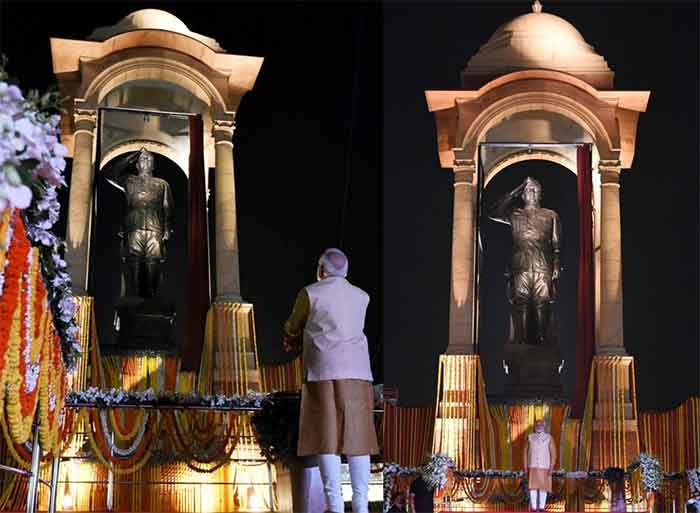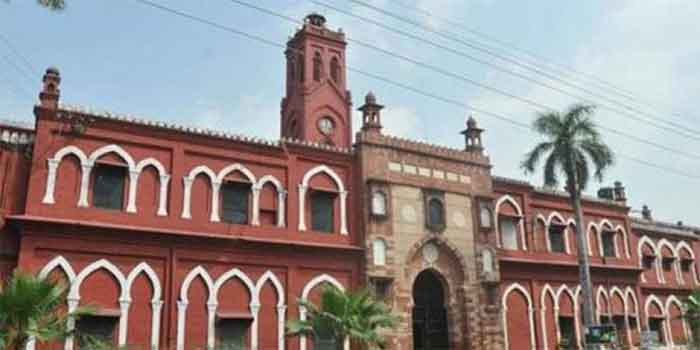A Short Profile of A Muslim Freedom Fighter — Maqbool Ahmed Jamaie
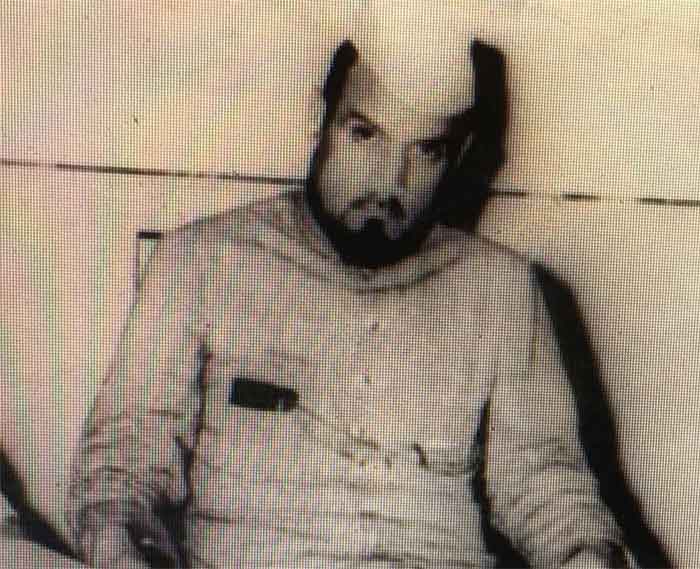
India attained its independence on 15th of August, 1947 from British colonialism due to the combined and united efforts of all the communities of Indian sub-continent irrespective of their numbers – bigger or smaller — Hindus, Muslims, Christians, Sikhs and others. The known Muslim Poet-philosopher of the sub-continent, Sir Mohammad Iqbal in his enchanted and famous National Song, Sare Jahan Se Accha, Hindustan Hamara, portrayed India as a ‘gulsitan’, a garden and its citizens as ‘bulbul’, nightingales and gives an ever-lasting message in the poem that ‘mazhab’, (generally translated as ‘religion’), does not teach communal biases, prejudices and hateful and negative feelings against each other.
On the eve of the 75th Independence Day of India, when India is planning for year-long celebrations from August, 2021 to August, 2022 with a host of projects, we assert that the most important agenda of these celebrations should be the remembrance of one of the strongest concepts which the freedom fighters of India conceptually and practically materialized on the basis of which India attained independence from British Imperialism — the Hindu-Muslim Unity for National Integrity! Without the spirit of communal harmony and communal solidarity, India would not have attained freedom from British Raj. Even during the freedom movement of India, India faced communal disturbances and riots several times. But, before the united and cemented strength of some of the freedom fighters of India from Hindu, Muslim and other communities, communal elements in India could not stand for long and were often defeated and marginalized. In a way, it can be said that the dedicated freedom fighters of India fought against communalism within India with such organized and systematic strategies that they defeated communalism within India on one side and British imperialism on the other side.
On the occasion of the 75th Independence Day of India, we believe that we should remember the successful and dedicated efforts of our freedom fighters from all communities who remained steadfast against all kinds of communal elements and stood firm like rocks and mountains to protect the national integrity of India and attained the independence of India. India badly needs the revival of the same spirit of communal harmony and communal solidarity to safeguard the unique national identity of India which is expressed in its different flowers of diverse colours and textures in which the musical nightingales sing — India for Indians and Indians for India: No communalism, no racism; only patriotism and patriotism!
Keeping the above message in mind, I am presenting here a short profile of a Muslim freedom fighter, Maqbool Ahmed, who is popularly remembered as Maulana Maqbool Ahmed Jama’iee, (28 May 1902- 14 July 1963). He was born in Sialkot, Punjab in Indian sub-continent, (presently part of Pakistan) and spent more than a quarter century from 1902 to 1947 for the freedom of the country with a staunch belief in Hindu-Muslim unity and after independence from 1947-1963, spent his life for uplifting national integrity and the development of the country and working for the orphans, poor and the destitute. As for his family life, he was married in an early age arranged by his parents; but his wife passed away soon and he got one daughter from her. After that, he was married twice — one from Seoni, CP, Madhya Pradesh and the other from Calicut, Kerala and he was blessed with children from both the wives. The writer of this article is one of his daughters from his third wife, Ayesha Begum, a family-devoted woman who fully cooperated with him in all his political struggles for the independence of the country giving many sacrifices. So here I begin.
Muslims in India were always at the forefront fighting against the British Imperialism in India even earlier to the First War of Independence of 1857. The Wahabi movement in 1830s, the Deobandi movement in 1867 and the Jamiat e Ulema e Hind which was formed in 1919, the Khudai Khidmatgaar movement in 1929 and few more were such strong and dynamic Muslim organizations that without mentioning them the history of the independence of India would remain incomplete. Along with these, there were a significant number of Muslim patriots and nationalists who joined the Indian National Congress which was formed in 1885 along with the Hindus and the other communities of India and who worked consistently and heroically under the leadership of Mahatma Gandhi, the Father of nation, for the freedom of the country.
One such a person who became a strong freedom fighter during his college days was Maqbool Ahmed who was one of the active leaders of the Indian National Congress and also one of the known leaders of Jamiat e Ulema e Hind. Maqbool Ahmed was born in Sialkot, Punjab on 28th May 1902 in a respectable Muslim Kashmiri Rajput family whose ancestors fought against British imperialism in Kishtwarh, Kashmir. It was a time when thousands of families shifted from Kashmir to Sialkot and the family of Maqbool Ahmed was one of them. Maqbool Ahmed therefore combined in him the royal aristocratic characteristics of warriors and rulers which were clearly manifested from his youth when he joined the freedom movement for the independence of India while he was just a teen ager and a student. His father Shaikh Fazluddin was a man of commerce and trade by profession but used to compose poetry in Punjabi and was a close friend of the renowned poet, Allama Iqbal. His house was in the same neighbourhood of Allama Iqbal and there was also a close relationship between the two families. Allama Iqbal’s niece, (the elder brother of Allama Iqbal, Babu Ata Mohammad Sahab’s daughter, (in Urdu bhatiji) was the paternal aunt (in Urdu, chachi) of Maqbool Ahmed. The honourable mother of Maqbool Ahmed, Karim bibi was a noble and family-focussed lady.
Maqbool Ahmed completed his primary and high school education from American Mission High School, Sialkot. In 1919 he got admitted to Mohammadan Anglo Oriental College, MAO, Aligarh for his Bachelors. But when Gandhiji launched the non-cooperation movement in 1920, he had to leave MAO College because he joined the non-cooperation movement as one of the youth leaders; and MAO, College had British inclinations. In his early twenties itself, Maqbool Ahmed emerged as one of the proactive Muslim youth leaders who belonged to the anti-colonial Muslim activism headed by known personalities like Sheikh ul Hind, Maulana Mehmood Hasan, Maulana Abul Kalam Azad, Maulana Mohammad Ali Jawhar, Zakir Hussain, Maulana Husain Ahmed Madani and others. Maqbool Ahmed was deeply inspired by the leadership of these personalities from his early teen age. It should be noted here that when he left MAO College, Aligarh, due to his participation in the non-cooperation movement, he joined the Jamia Millia Islamiya University which was established as the Nationalist University in its first initial stage in Aligarh under the tents under the leadership of Maulana Mohammad Ali Jawhar who was its first Vice- Chancellor from 1920-1923. Maqbool Ahmed passed his BA in Deeniyat, (Theology) in 1922 from Jamia Millia Islamia when he was around 20 years old. Ever since that time, Maqbool Ahmed called himself Maqbool Ahmed Jama’iee, because along with the pioneers, leaders and the teachers of the Jamia Millia Islamiya, students of his first batch of Jamia Millia Islamia were also looked upon in the history of Jamia Millia Islamia and the history of independence of India as the revolutionaries of Indian independence and the foundation stones of Jamia Millia Islamia.
Other unique characteristic qualities of Maqbool Ahmed was his sincere devotion for Islam, his love for attaining higher education, his deep interest in learning different languages, his ardent love for Iqbal’s poetry, his practical engagements in serving the orphans, the poor and down-trodden people. Hence, despite of meagre financial resources and also being fully engaged in the freedom struggle under the Indian National Congress, he managed to continue his education and obtained another BA degree from Oriental College University, Lahore in 1938 and thus he became a double graduate. Then, in addition to this, he also obtained a degree of Adib-e Fazil from Madras University in 1943. Thus, Maqbool Ahmed was a person with a versatile education.
It is crucial to note here that this young man who acquired higher education from three famous Universities, offered his time, energy and his unique literary talents of writing and speaking for the noble cause of the freedom of the country from 1920 to 47, for more than a quarter of a century, and then spent the rest of his life till his death in 1963 for the cause of communal harmony, socio-welfare and the development of the nation. On one side, he was fluent in seven languages, including expertise in two foreign languages, Arabic and Persian and over-all familiar with the thirteen languages; and on the other side, he was an eloquent speaker who could address and impress hundreds of big gatherings with his art of speaking. For this reason, he was always sent to visit different places in India to promote communal harmony and national unity and integrity as a spokesman from the Congress.
Maqbool Ahmed was also a prolific writer, who contributed around 7000 pages as articles, concept papers and book-lets in different journals and newspapers arousing the national consciousness among the Indians from all backgrounds so as to motivate them to come forward to fight for the freedom of the country and after independence for the integrity of the country. Most of his writings and speeches devoted to the cause of independence and his clothes represented all symbols of the boycott of foreign dress. He kept charkha, a spinning wheel at home as a model of inspiration and wore khadi a symbol of the Swadeshi movement of Gandhiji . His act of removing foreign clothes from his body even on his death-bed became a tell-tale story.
When Gandhiji started the Civil Disobedience movement on 12th March 1930 which incorporated the violation of the Salt Law through the historic Dandi Salt March, Maqbool Ahmed fully participated in this Civil Disobedience movement and was sentenced for 1 year imprisonment in Seoni, Chindhwadah Province, CP, and was released after six months under the Gandhi-Irvin Pact. However, when the Pact proved to be a failure and the British started suppressing the congress men and freedom fighters of all backgrounds even more than before, the Civil Disobedience movement was renewed in January 1932, and he was again arrested in 1932 after he delivered a fiery speech inviting people to join the civil disobedience movement and was put in rigorous imprisonment for 2 years and four months in Sialkot jail along with congress leaders. After his release, he came back to Seoni, CP and continued his struggle for freedom with ever more zeal giving a lot of sacrifices. Neither he could focus on any profession for his livelihood, nor could he settle his family at one place with financial security and stability, because his busy schedule of writing, speaking, protests, arrests and such activities never allowed him any time and energy for any other work. In 1938, Maqbool Ahmed was sent to Hyderabad, but the Nizam government investigated his political activities and asked him to leave the princely state of Hyderabad immediately and so he left the place and returned back to Seoni. In 1939, he was elected as the Vice President of the Seoni Municipality on Congress ticket and he was also made the Vice President of District Congress Committee, Seoni.
It is important to note that several organizations in India always found in the personality of Maqbool Ahmed a hard-core devotee for national unity, solidarity and unanimity, championing the cause of Hindu-Muslim unity, and an ardent and a faithful worker for welfare activities. Hence, Maqbool Ahmed was sent to Kerala to manage the Jamiyet Dawah Tablighul Islam, popularly called, JDT Islam Orphanage in order to provide bread, shelter, health care and education to the poor and the destitute of the orphanage from 1940-1947. It should be mentioned here that Jamiyet Dawa’h Tablighul Islam, JDT Islam was established in Kozhikode in 1922 to provide institutional help, care and some education to the orphans. JDT, Kerala was established because in Moplah Rebellion in 1921 in Kerala, actually the British turned the grievances of Moplahs (generally defined as the oldest settled native Muslim community who were the descendents of any native converts to Islam from Middle East who mainly settled in the district of Malabar, in Kerala) into communal lines which sparked the big Moplah Rebellion. In the Rebellion, thousands of Moplahs were killed and badly crushed. It was in this background, that Jamiyet Dawa’h Tablighul Islam, JDT Islam was established in Kerala in 1922. Maqbool Ahmed worked hard day and night to increase the strength of the Orphanage and to increase its funds up to a sum of rupees, 10,000 /- for its proper functioning. However, all his sincere endeavours were disliked by the Muslim League leaders who during that time stood against the Congress leaders and all those Muslim freedom fighters who were against the proposal of the partition of India. They raised their voice against him because he was against partition and he had to leave JDT and all his welfare activities in Malabar in 1945.
As hinted above, as India was approaching towards independence, the tension between Indian National Congress and the Muslim League was increasing and this also reflected in the General Elections of British India held in December, 1945 and in the Provincial Elections in January 1946. Based on these elections, it was perceived by some analysts that Indian subcontinent already fell in the track of partition into India and Pakistan. But this scenario never discouraged the Congress leaders to give up their fight for the freedom of the United India. Maulana Abul Kalam Azad was at the forefront in opposition to the partition and he was strongly supported by a significant number of Congress Muslim leaders. Maqbool Ahmed was among the staunch supporters of United India and the strong opponent of the partition. Hence it is observed that although the whole freedom movement was getting tensed on communal lines, Maqbool Ahmed stood with Azad making no compromise with the idea of United India. Hence people of united vision rallied around him and after the 1946 Provincial elections, Maqbool Ahmed was unanimously elected President of the district Congress Committee Seoni. From 1946 to 1947, he stood shoulder to shoulder with Azad in organizing and addressing several programmes for the Hindu-Muslim unity and United India. In 1947, he came to Nagpur and started a weekly paper in Urdu and Hindi combined drawing the attention of the people towards communal harmony and national unity and he was greatly successful in arousing national consciousness among the people for the common goal of freedom and the development of the country.
In the same year, in 1947, Maqbool Ahmed attended and fully supported the Nationalist Muslim Conference at Luckhnow presided over by Maulana Abul Kalam Azad and openly supported the resolutions passed in the conference. Throughout this period, several committees were organized to strengthen and revitalize the freedom movement focussing the vision of a United India under the dynamic leadership of Azad. For instance, a Central Union and Progress Committee was organized and Maqbool Ahmed was nominated in it from the Central Province. Again after a conference of the Nationalist Muslims of C.P. & Berar, a Provincial Union and Progress Committee was organized in which Mahatma Bhagwandas was made the President and Maqbool Ahmed was made the General Secretary. During this time, he was also the General Secretary of the C.P. & Berar Jamiat Ulema Hind and the President of the Nagpur Provincial Congress Muslim Majlis. Besides all these, the C.P. & Berar Government also nominated him as a member of the Rural Development Board.
While Maqbool Ahmed was already engaged in several projects concerning the freedom of the country and building national unity in the North of India, Congress leaders were very much disturbed by the communal disturbances that emerged in South of India. Maulana Azad had a discussion on this issue with Maqbool Ahmed in Luchnow itself when he came from Nagpur to attend the Nationalist Muslim Conference in 1947. Finally, Azad decided to send Maqbool Ahmed to make a tour of the South to promote communal harmony in the Southern provinces. Maqbool Amed totally agreed with Maulana Azad that the tour to the South is necessary and urgent but he told Maulana Azad that he had no money for making the tour. Maulana Azad responded to him in these words: “You have to manage yourself because there are no funds with the Central Union and Progress Committee.” Consequently, he sold off his hand press at Nagpur and started his South India tour at once. He toured Kerala, Tamilnadu and Andhra Pradesh discussing and giving talks on the need of communal harmony and national unity for the socio-economic and political stability of the country so as to fulfil the dreams of a strong and self-sufficient Democratic Republic of India. It is said that his eloquent speeches in all the important cities of South of India, with his words, ‘India for Indians’ made a deep impact on the people.
In November 1948, Maqbool Ahmed was brought to Hyderabad by Sri Ayyadevara Kaleswara Rao of Vijaywada, one of the known freedom fighters of India and who later became the first Speaker of the Legislative Assembly of Andhra Pradesh from 1956-1962 and then on the request of Sri Ramanand Swamy Tirtha, the known freedom fighter of India and the Principal leader of the Hyderabad State Congress, he settled down in Hyderabad. The socio-political conditions in Hyderabad were too miserable, unsafe and tension-ridden due to the ‘Police Action’, which led the Indian armed forces invading the Nizam-ruled princely state of Hyderabad in September, 1948 which concluded in the accession of Hyderabad to India. There was massive violence on communal lines in which hundreds and thousands of people were ruthlessly massacred. Maqbool Ahmed was asked to tour Hyderabad and all the nearby places which were affected by the Police Action to restore communal harmony and national unity which he did taking all the risk for his life and his family members.
Appreciating his zeal for national unity and his loyalty and intrepidity, he was welcomed as a member of several important committees of the Congress including Andhra B. Provincial Congress Contact Committee and a member of the Relief & Rehabilitation Committee after being nominated by the State Government. He was also made the Superintendent of an orphanage, Anisul Ghurba in Nampalli, Hyderabad. At the same time, he was nominated as a member of the Hyderabad Jamiat Ulema Hind working committee.
In the year 1950, the first election of the Municipal Corporation Hyderabad, MCH was held and it was feared that in Hyderabad with Muslims forming a large section of its population, the Congress would suffer badly as a reaction of the Police Action. But due to continuous efforts and day & night contact with the masses the result was astonishing. The Congress was greatly successful and 20 Muslim candidates were among the newly elected councillors on Congress ticket, and Maqbool Ahmed was one of them. In the year 1956 in the Municipal Elections of Hyderabad, he was again elected as a Councillor from Dargah –e- Yousufain constituency in Hyderabad city.
All along with his political services to the country, he also gave his services as one of the members of Editorial Staff of the Daily Musheer-e-Deccan, the Daily Saltanat, Paisa Akhbar and Amar Bharat. He also worked in the Lutfuddowlah Oriental Research Institute, Hyderabad.
Besides being a freedom fighter, a political leader, a scholar, he was also a recognized and well known poet in Urdu. He has left a manuscript of his poetry which comprises a collection of his Ghazals and nazams , with the title, “Kalam-e-Maqbool” which reflects his profound wisdom, love and loyalty for his country and love for the poor and the downtrodden. In fact, a greater part of his book, Kalam e Maqbool is a pristine and pure wake-up call for young and old Indians motivating and stimulating them to liberate India from imperialism and develop and glorify the country. This book is currently under the process of review for its publication soon. He was also a khateeb, ‘Prolocutor’ of the Masjid, Aek Minar, Nampally, and Muslims from even far off places used to come there to attend to his khutbahs, sermons because they get enlightened by his Islamic thought, his command over Arabic and Urdu and his citation of selected poetic verses of Allama Iqbal to awaken and motivate the Muslims.
Thus, in brief, Maqbool Ahmed devoted whole of his life for the freedom of the country, and for the promotion of communal harmony and national unity. This brilliant candle, after brightening his Mother Country with his great services and sacrifices left for an eternal abode of peace on 14th of July 1963.
We would like to conclude this small article citing one of his poetic couplets (written in Urdu) in which he is questioning Indians whether they ever remember the sacrifices of those who passed their lives in consistent struggles, jails and unimaginable hardships and yet never hesitated to give up everything for the love and honour of the country:
Watan ke liye jisne sab kuch lutaya
Firangi ke jailon mei jeevan bitaya
Huwa dushman e jaan apna paraya
Magar iske mathe par bal tak na aaya
Kise yaad aaj iski qurbaniyan hain
Jinhe naaz hai hind par wo kahan hai?
English translation of the above verses:
Who gave up everything for the country?
Who passed their life in British jails?
Who had enemies, internal and external?
But showed no negative expression from even his forehead!
Who remembered their sacrifices today?
Where are those who were proud of India?
Dr Zeenath Kausar Former Teaching Staff of International Islamic University Malaysia, IIUM.

